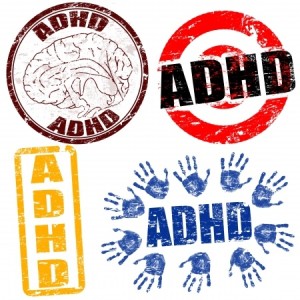Is ADHD Simply a Case of the Fidgets?

At a conference, I heard Bose Ravenel (a great name) describe how the “science” behind ADHD and other childhood behavioral disorders wasn’t truly scientific. I bought and read The Diseasing of America’s Children, which he co-authored with John Rosemond. I collected additional critiques of ADHD treatment by Peter Breggin and Fred Baughman, intending to write an article for my web site. But other interests came along, and I didn’t get around to it for a few years.
As an abstinence-oriented addictions counselor, I have a built-in bias against using stimulant medication to treat behavior problems. According to the U.S. Department of Justice, most ADHD medications have “a high potential for abuse”, leading to possible psychological or physical dependence. In other words, Adderall and Ritalin have the same abuse potential as morphine or OxyContin. It didn’t make sense to me that this “treatment” for ADHD would reverse a biochemical or neurological deficit as claimed. The calming effect of stimulants had to have another explanation.
In the summer of 2012 I finally sat down and did the reading and research to first write: “ADHD: An Imbalance of Fire Over Water or A Case of the Fidgets?” Although I read several studies supporting the use of ADHD medications, I still concluded that the negatives far outweighed the positives.
I don’t think I simply found what I already “knew” to be true because of my built-in bias against stimulant medications. The research convincingly showed that stimulant medications do not really “treat” ADHD. And I think you will too after watching the presentation by Robert Whitaker in: “Medicating ADHD: Diagnosis and the Long-Term Effects of the Medications.”
Here is just one teaser mentioned in the video. William Pelham, a researcher with the Multimodal Treatment of Attention Deficit Hyperactivity Disorder Study (MTA Study), a long term study of the treatment of ADHD funded by the NIMH said: “We thought that children medicated longer would have better outcomes. That didn’t happen to be the case. There were no beneficial effects; none. In the short term [medication] will help the child behave better, in the long run it won’t. And that information should be made very clear to parents.”
Viewing ADHD as a simply a neurological disorder that is treated with medication seems to make the mistake of viewing human beings as simply “bodies run amuck” (to use Dave Powlison’s phrase). This reductionistic understanding of human nature neglects a biblical understanding that we are a “psycho-somatic unity” of soul (psyche) and body (soma).
There is nothing morally wrong in using ADHD medications. But given the problems with them, I certainly think it is unwise to use them long-term—particularly since they have the same risk of drug dependency as morphine and OxyContin.
